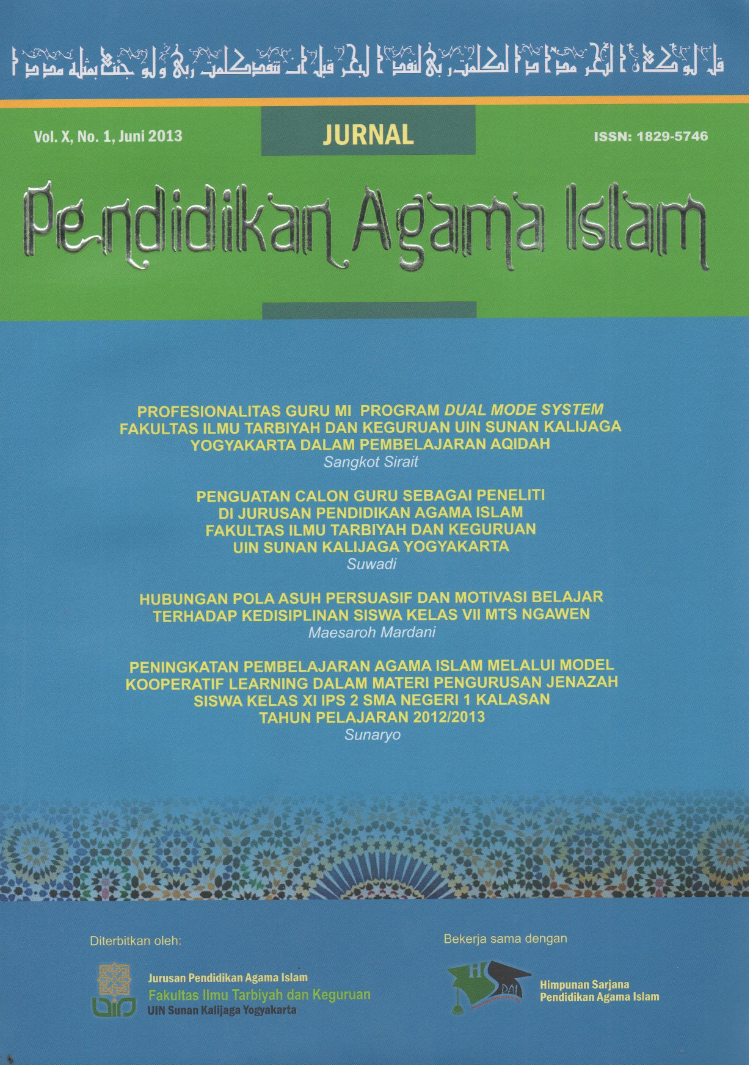PROFESIONALITAS GURU MI PROGRAM DUAL MODE SYSTEM FAKULTAS ILMU TARBIYAH DAN KEGURUAN UIN SUNAN KALIJAGA YOGYAKARTA DALAM PEMBELAJARAN AQIDAH
##plugins.themes.bootstrap3.article.main##
Abstract
This work is a report of research from Dual Mode System’s universtity students at Tarbiyah Faculty in teaching the subject of Islamic Theology. The research aims to understand the teacher’s competence in teaching Islamic Theology. The results of the research indicates that all teachers, generelly, have tougt well according to their teaching plans. But from metodological aspects especially material development, they do not not have competence in their work. The process of teaching is still dominated by lecturing; there is no connection other disciplines, and the teachers do not have interconnetive and integrative perspectives when teaching. The doctrinal approach is dominan.The main problem exists in teaching Islamic Theology is reducting of material, for examples, when they teach the subject of belief in Prophets and Books. Explaining of Prophets is only by explaining the Prophet of Muhammad. And so does for Books. When they teach Belief in Books, their explaination is only to the Qur’an. Of course, the problems of teaching is caused by competence of teachers who do not have philosopical perspectives when teaching, particularly,teaching religion like Islamic Theology. For example, they can not differenciate between universalism and particularism, and it is difficult to differenciate between Prophets and Muhammad.
##plugins.themes.bootstrap3.article.details##
Copyright
Copyright Notice
Authors who publish with this journal agree to the following terms:
- Authors retain copyright and grant the journal right of first publication with the work simultaneously licensed under a Creative Commons Attribution License that allows others to share the work with an acknowledgement of the work's authorship and initial publication in this journal.
- Authors are able to enter into separate, additional contractual arrangements for the non-exclusive distribution of the journal's published version of the work (e.g., post it to an institutional repository or publish it in a book), with an acknowledgement of its initial publication in this journal.
- Authors are permitted and encouraged to post their work online (e.g., in institutional repositories or on their website) prior to and during the submission process, as it can lead to productive exchanges, as well as earlier and greater citation of published work.
How to Cite
References
556
Views
381
Downloads

